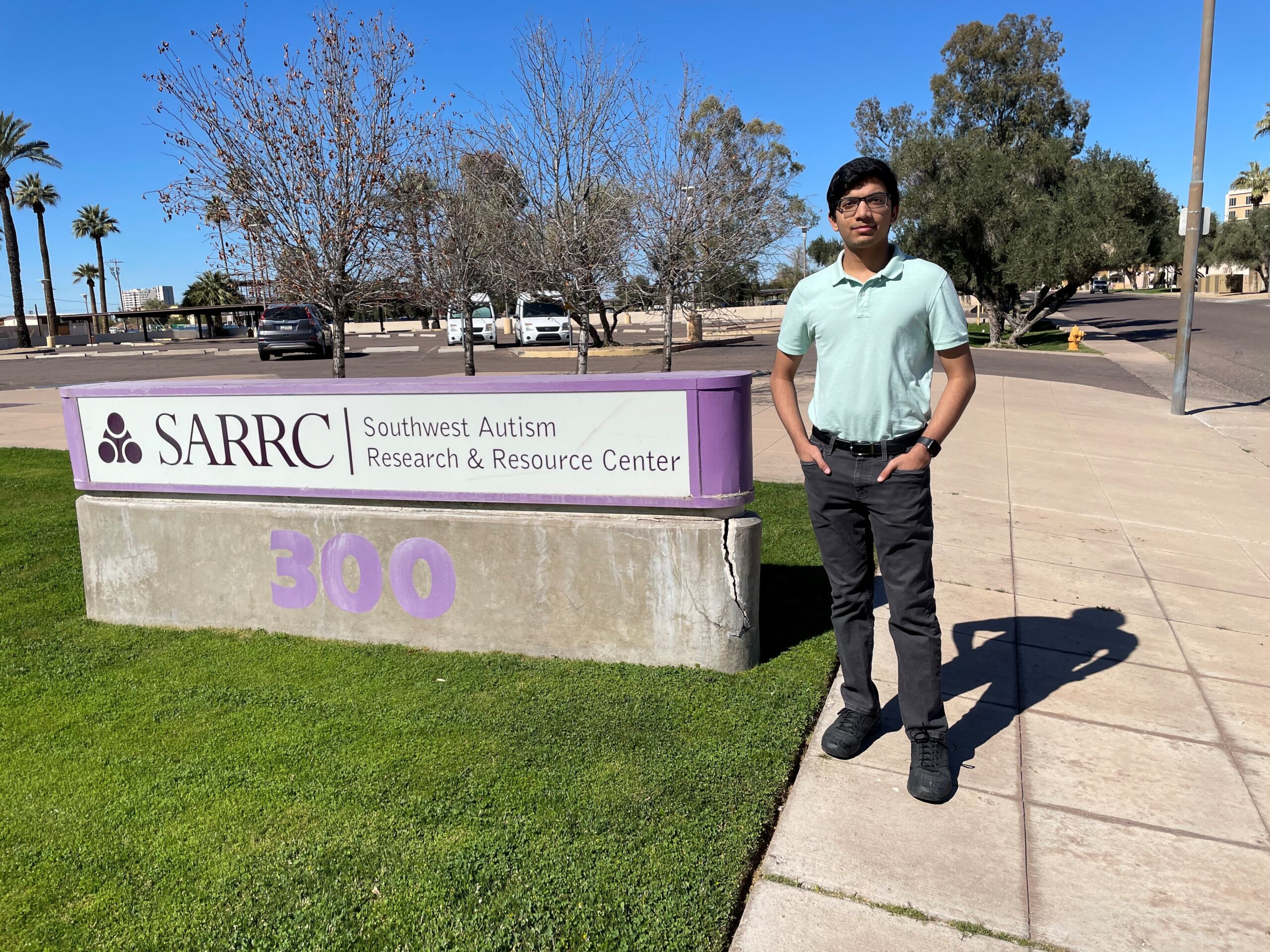By Shreyas Hallur
On a cold October morning, I submitted my application to become a Peer Mentor within the CommunityWorks program at Southwest Autism Research & Resource Center. I didn’t realize it then, but this decision had marked a new beginning. In just three months, I would participate in the most rewarding experience of my high school career.
Once the CommunityWorks program began, I quickly found myself amongst a community of welcoming peers. Every Saturday morning, the hours would fly by as I volunteered alongside newfound friends, who happened to have autism. While feeding turtles celery at the Phoenix Herpetological Society, I chatted with one teen about her interest in veterinary studies. The next week, another friend with autism taught me the chemistry of cooking as we prepared meals for First Place residents. With every volunteering session, I learned a little more about my peers impacted by autism – their hobbies, interest, and routines. And frequently, I found myself blown away by their aptitude for science.
However, I was most surprised to learn that my friends had cultivated this scientific knowledge on their own. While the school system did help them learn the basics, an overemphasis on their diagnosis had impeded these teens’ scientific education. As an advocate for educational equity, I couldn’t stand idly by knowing my friends lacked access to STEM resources. My mission was simple: engage the talents and interests of my peers with autism by connecting them to inclusive, science-specific extracurricular experiences in the Phoenix community.
In April 2018, I launched my project by first sending a proposal directly to the president and CEO of SARRC, Dr. Daniel Openden. To my surprise, Dr. Openden welcomed my proposal and connected me with staff who could guide me. With SARRC’s support, I now had a platform to potentially train program staff and contact families whose children could benefit from this program. All I needed was someone who could provide science-specific activities for participating families.
Luckily, I found this partner in the Arizona SciTech Initiative, an organization with connections to hundreds of STEM-related companies and organizations. Its executive director showed great interest in my proposal and we soon scheduled a meeting between SARRC and Az SciTech. As discussions continued into the next year, this initiative only grew in scope as another organization, the Institute for Learning Innovation, joined our team. Soon thereafter, our group formally submitted a grant proposal to the National Science Foundation (NSF) to secure funding for an inclusive science outreach program.
After months of waiting, we finally received news that our program had been approved! Although the pandemic has delayed some plans, I am optimistic that our project will help many families nurture their child’s love for science.
In retrospect, I now can answer why I became a peer mentor. Through SARRC’s CommunityWorks program, I found many new friends whose dynamic personalities helped me reimagine how I view autism. SARRC has inspired me to do more and supported me every step of the way. I found a way to actually give back to this special community. Going forward, I will continue to champion inclusion and equity, and I know SARRC will continue to inspire others to do the same.
Shreyas is a 19-year-old student at Duke University who participated in SARRC’s CommunityWorks program as a peer mentor from 2017 to 2019. He currently serves on the Advisory Committee for SARRC’s Building Capacity for Inclusion with ASD audiences project, which has recently secured funding from the National Science Foundation.

